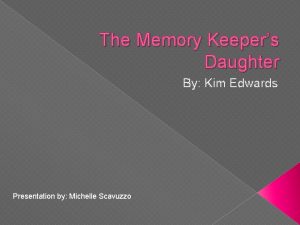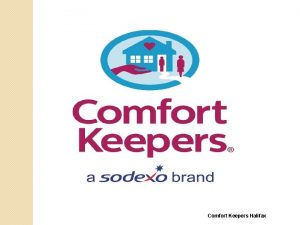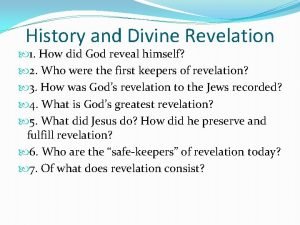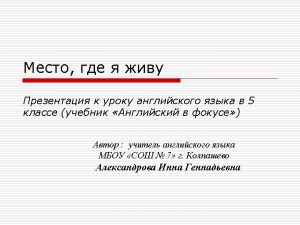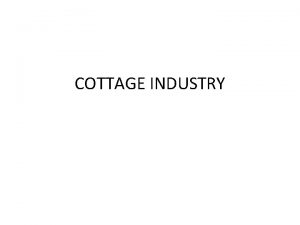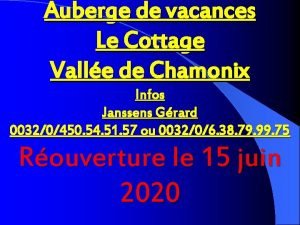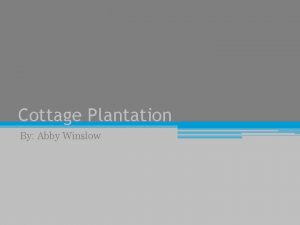Lock Keepers Cottage www laganvalleylearning co uk The










- Slides: 10

Lock Keeper’s Cottage www. laganvalleylearning. co. uk

The Lock Keeper’s Cottage

Lock keepers The Lagan Navigation Company, who owned the canal, employed them and they were given houses to live in beside the locks as part of the job. Lock keepers were the men who looked after the locks and made sure that the boats got through safely. George Kilpatrick became the Lock Keeper at Lock 3 in 1922.

The lock keeper’s family Mum This is a picture of Mrs Kilpatrick with one of her grandchildren. Children This is a picture of Dorothy and two of her sisters sitting on part of the lock gate. Dorothy (age 9) is on the left. She has given us some lovely memories of life in the cottage. Dad This is George Kilpatrick. He was the lock keeper at lock no. 3.

Inside the lock keeper’s family The Lock Keeper lived in the cottage with his wife and 10 children. This was Mr and Mrs Kilpatrick’s bedroom. It was found on the ground floor of the cottage. It was also used as the ‘good room’ when important people came to visit. These stairs led to two bedrooms. The six girls shared one room and four boys shared the other. This tin bath was used for washing the clothes and for washing the people!

Dorothy’s memories of the cottage “There was no electric, my mother cooked on the fire, a big open fire. My father was allowed coal off the boats; that was one of the perks, massive lumps of coal thrown off the barge that he had to cut up. There were two hobs, one either side of the fire. The kettle was always on one, the tea pot on the other. There was a big fender at the front and that was where she kept the plates warm”. “She had a griddle, she baked every morning, before we were out of our beds she would have soda bread, potato bread and wheaten bread baked. How she ever did it, I will never know, she never seemed to be exhausted”. “For essentials we were sent to bring messages - that was what it was called, you went for messages never for groceries – at the shop at Milltown, ‘Fairweathers’ it was called. ”

Dorothy’s memories of the garden Dorothy was the daughter of Mr Kilpatrick she said; “My father was a lock keeper, he kept a few animals and looked after the garden. The wages were not very high so he had to grow his own vegetables and we had two goats for milk. My mother had hens and two or three geese”. These are some of the fruit and vegetables grown in the garden. Can you name them?

The lean-to shop “To the side of the lock house was the shop. It had a sloping corrugated roof. My father ran the shop as another way of making a bit of money”. The shop sold… “The shop was open every day but Saturday and Sunday were big days. At that time people walked more than they do now and courting couples would walk the towpath. ”

Objects in the Cottage

www. laganvalleylearning. co. uk



